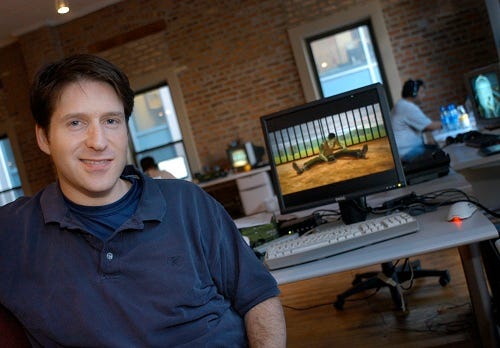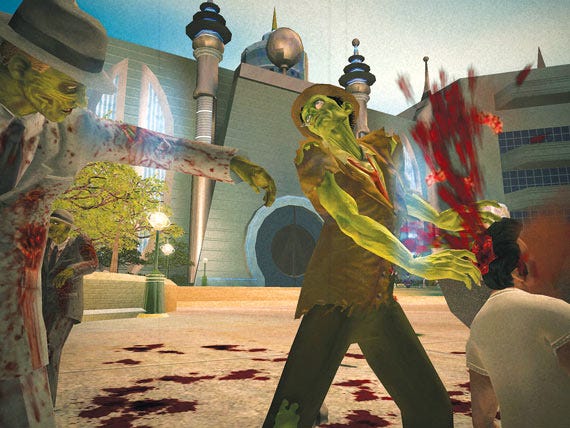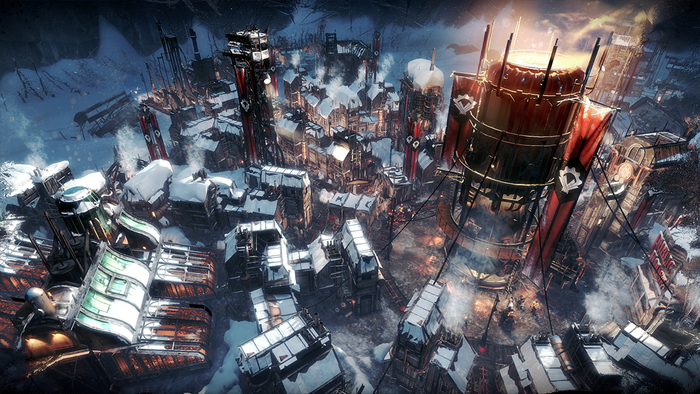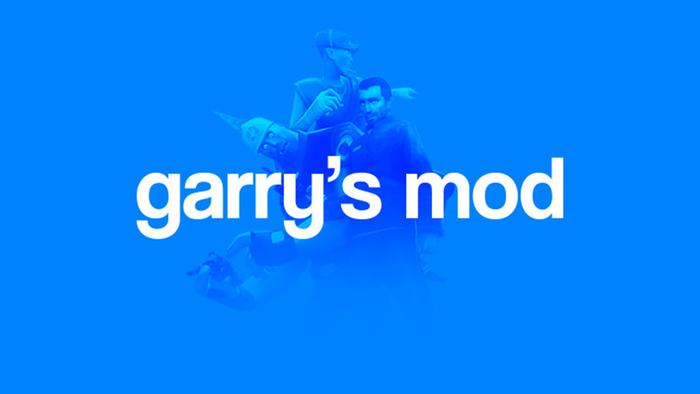From blockbusters like Halo, to small independent titles like Stubbs the Zombie, Wideload Games' Alex Seropian has done it all, and in this Gamasutra interview he talks about the company's 'political party game', Hail to the Chimp, XBLA plans, outsourcing, and more.

Alex Seropian's Wideload Games has been making great strides with its outsourcing game production model in the last few years. After Seropian sold Bungie to Microsoft, he took a small team and made Stubbs the Zombie for the Xbox using the Halo engine, outsourcing the bulk of the art but keeping a core team of creatives in-house. This Hollywood-esque production model has served him through to his new Gamecock-published 'political party game' project, Hail to the Chimp, as well as smaller games he revealed during the interview.
In this discussion, we spoke about due dilligence for outsourcers, the using Halo engine versus Unreal Engine 3 (which powers Hail to the Chimp), politics in games, the possible return of Stubbs, and the importance (or otherwise) of intelligent writing in games.
I assume you're continuing with your Hollywood-style company model?
Alex Seropian: Yes, we are continuing to use that model, evolve it, and grow it.
How many people does that currently involve in the inner core? I recall it being 12 previously.
AS: We have 20 people now - we actually have two teams. We have a team that's doing Hail to the Chimp, which is the Stubbs team with a couple of more people on it, and then we have a real small team that's doing games for digital download.

Is that Live Arcade or Steam-like stuff?
AS: We have a game right now that's destined for Live Arcade.
Have you heard about what Warren Spector's doing right now? He's taking a semi-similar model, but he's got around 40 people in-house on one project. They're building the first of every asset, and then outsourcing that way. Are you still sticking with a more directorial approach?
AS: We do both. We build a prototype with our internal team, which is at least the first of every asset, and then we spend a lot of time doing preproduction with that internal team for the rest of the project. Then we send a lot of stuff out from that point. With Hail to the Chimp, we've been outsourcing some of the code. We did very little of that with Stubbs.
The frontend of the game that you saw (here at E3) -- the newsfeed -- we sent all of that out. That was pretty cool, because we actually found a company that does motion graphics for movies, so the guys that did our motion graphics did the graphics for 20/20. They do a really good job. Then we have another company that's doing all the engineering. That world is in one set of tools, and we work in a different set of tools, so we've got a company that's working with us that is taking all the motion graphic assets and putting them into Unreal.
And you're using Unreal?
AS: Yeah.
You didn't want to continue on with the Halo engine?
AS: We would've liked to, but one thing that Unreal has going for it as far as it impacts our model is that it's out there. We were the only licensee of the Halo tech, so working with other third-party people was like, "First we have to train you on this thing that nobody else has ever used." With the Unreal engine, we've actually met a lot of people that know more about it than we do, which is real cool.
That seems to be a common reason for adopting it, because it's out, and people are ready.
AS: It's a great toolset, it's a great engine, and you have to be a little careful about what you want to do with it. We're doing something very non-standard with it. I don't know if anyone else is making a party game, but [it won't be with] the very stylized graphics we have. That's a challenge for us, because Unreal was designed to make Gears of War. Some of it's been a challenge, but some of it's been great. The whole tool chain aspect of it has been really good for us.
With these people you're outsourcing to, are you still doing a lot of overseas stuff, or are you taking some more of it back here (to the States)?
AS: We're still doing some stuff overseas, but for us, the outsourcing is less about getting down to a low cost as it is about utilizing a model that has us spending our resources when we need them. It's a constant thing. We have character modelers in Korea that are really good. We have some modelers in Canada as well. There's a lot of local people, too.
Have you found any places better than others, in terms of places to outsource to?
AS: I'll say that working with companies in Chicago has an advantage to us, because they're not further than a baseball bat's length away!
So you can smack them?
AS: Yes, exactly! We can get together, which is really helpful when you're doing stuff that's visual or aural. They can come over and you can say, "You hear that? I want it more like this." That short-circuits the conversation, and gets a little bit of that stuff you get when everybody's in the same room. Chicago's actually turned out to be a really good place to work, because there's a lot of audio companies there. A lot of TV and film production happens in Chicago, so there's a lot of people we work with there that we might not be working with if we were narrowly focusing our viewpoint.
You seem to be continuing on with original IP. Not that anyone should have to explain this, but from your perspective, why do that?
AS: There's a lot of reasons. Primarily, what I'm interested in is the creative process of inventing and coming up with something new. It's terrifying at the same time. But personally, it's very rewarding for me, and that's why I do it. It's also from a business perspective where I think we, as a small independent company, can build stuff that has real value. If you're doing work for hire from a big publisher, you can make some money, but at the end of the day, what do you have left? They walk away with your heart and soul, and you've got nothing. I didn't really want to do that.
You wouldn't necessarily need to do it for the money, because you sold Bungie, right?
AS: Right.
I was assuming at this point it's more of a labor of love.
AS: Oh, don't be naive! I've been very fortunate. When starting Wideload, I actually sat down and said, "Here's the kinds of things I want to do, and the terms in which I want to do them. Can I think of a way to set up an organization or structure to do that?" So yeah, there's definitely some choices that I've had the fortune to be able to make.
Do you get any kinds of royalties from Halo right now?
AS: It pays me back in spades every day, just not in cash! So no. But I think that was one of the rare situations where everyone involved -- customers included -- ended up winning.

I don't think there is any kind of industry standard or practice for due diligence on outsourcing. Have you had to do that yourself?
AS: Oh yeah, that's a real big part of our process. It's not just qualifying someone we're going to work with, but that's part of it. We take it very seriously. It's like an interview, and it's more than just, "Can you paint a pretty picture?" It's like, "What does your company look like? How professionally is it run? Do you have a producer there? Do you know how to meet a deadline? Do you know how to plan things?" It's also about relationships.
The big thing for us is that we want to work on a project with the guys we were working on a project with last time. When you get that sort of continuity in relationships, you can get the best of both worlds, where you can actually have this giant team with hundreds of people that you can call up and say, "Hey, this is the next project. Here's what we need you for. Here's when it's going to start." You can build that like you build a relationship with your team, but not have to suffer the tremendous, crushing burden of a giant Halo that way. That's how a lot of the film and TV production studios work.
They get into relationships with other people that they like working with, and try and replicate that over and over. That's what we're trying to do. It's really not about the lowest bid for us. It's not about setting things up to save money. The motion graphics are a good example. We purposely didn't have the capacity to do that in-house, and when we went out to look for somebody to do that, we could pick the people that have done that thing before many times.
It may not be the point, but it does save money, right?
AS: It does.
You don't have to ramp up and down, and get rid of all the people when you don't have a project. Since there aren't a whole lot of people out there doing this, is Warren Spector calling you up and asking, "Are these guys any good?" Are companies that are outsourcing talking to each other?
AS: Yeah. Whenever I go to a conference and talk about what we're doing, I always end up meeting other people that are trying to transition their studio to a model like this, or starting a new studio and trying to use a model like this. I've learned a lot from talking to those kinds of people, with what their own ideas are, and sharing experience that way.
It would be good at some point to get some kind of best practices set up and things to look for as well. Somebody should write an article about that sometime!
AS: Hmm!
Did Stubbs wind up doing well for you?
AS: Yeah. It didn't burn the charts up, unit-wise, but it was a great project for us to prove our model. From that perspective, it was extremely successful. It made money for us, too. I wasn't necessarily planning on turning a profit, so that was great. We're hoping to do another game with Stubbs, too. For us, it was a huge success.
Seems to have had some influence, as well - when I saw Dead Head Fred, I was like, "Whoa, that looks familiar!"
AS: Have you played it?

No. It's just [similar in] the concept. What do you think of Halo 3? Have you seen it or played it?
AS: I've seen it, and I think it's going to be great. There's a lot of Bungie guys who work here at Wideload, and we all play Halo 2, and there's some mixed reactions. I loved Halo 2. I thought it was great, and I think Halo 3 is going to be really good. That project seems to have been really well-managed in relation to what came before. That's got to tell you something.
I think some people thought Halo was better than Halo 2 because of game balancing and AI.
AS: Yeah. And there were some criticisms of how the story ended, and how it worked. I had a lot of fun with it, and got some really good stuff with it. I'm a sucker for the single-player campaign.
I couldn't understand what the characters were saying most of the time, because of the voice filters. I just interpreted it as "Yeah, I'm going to go shoot a guy!"
AS: "Something's going to blow up!"
Some day when I get a lot of money, I'm going to make a game where it's like, "In this level, you kick the guys. Okay, now kick those guys," or "This game is called The Gun Shooting Man. In this game, you shoot the men. This is your mission." And you shoot the men until the game is over.
AS: That sounds awesome. There's definitely a game that can be made that pokes fun at that stuff.
Is Hail to the Chimp a political statement in any way?
AS: Sure. I mean, you're going to read into it what you want. It's all there.
The monkey guy looks a lot like the caricatures that are drawn of [George] Bush.
AS: Any similarities are completely coincidental!
I think people should be more willing to take more political stands in games. Eugene Jarvis admitted to me that he was trying to stir stuff up with Target Terror. We've got this medium where we can influence peoples' thinking sometimes. We're trying to go for emotion, but shouldn't we also be trying to do something like that?
AS: Yes, but that's not really what we're doing. What we're doing is trying to make a game that can appeal to a huge spectrum of people, both from a gameplay and content perspective. It's something you can pick up right away, but there's also a certain amount of depth so that you can still like it after a year. The content's the same way. There's silly voice-over and stuff, and there's a news ticker, and there's little scenes with debates and interviews that we might understand but the kids might not.
That's really what we're trying to do. The reason we picked this theme is certainly influenced by the fact that we think that the shit that's going on right now sucks, and it's certainly on our mind. Making fun of that is a healthy thing to do. We're not necessarily trying to make a statement. None of the characters are left or right. You're not going to see a direct parody of the Cheney shooting, but you're going to draw parallels with what's going on in the world right now.
If you make a game that has anything to do with politics, do you feel some sort of responsibility to present a view that could inform people?
AS: I hadn't really thought about it too hard, and I actually feel a responsibility to keep my personal views out of it. I'd rather take advantage of the world we live in to make people laugh. I don't want to jam a message down anybody's throat.

So people who think everything's going to hell are going to think, "So this is saying everything's going to hell," but people who don't feel that way won't take that side?
AS: I don't think so. I don't think anybody who is a right-wing Bushie is going to hate our game because of this message. They'll probably hate our game, but not because of its message. It's because it's ruining our youth, or something. That's okay. (laughs)
What are you playing now, aside from your own games?
AS: The last thing I booted up was Cooking Mama and Resident Evil 4 on the Wii, and Pac-Man Championship Edition. I like that a lot. The last big game I finished was Gears of War, which probably tells you a little about how many games I finish, which is not many.
You mentioned that you have a lot of writers working on Hail to the Chimp.
AS: We've got about ten writers working on the project. Our lead writer is Matt Soell, and we've got some guys who work on The Onion and The Daily Show and that sort of stuff.
Do you think people pay attention to writing, or do they just skip over all the cutscenes?
AS: It depends on the game, and the quality of the writing. You asked me what I've been playing, and I've been playing Puzzle Quest. It's got all the RPG story stuff, but it was the circle button for me! That's just because I wanted to do the puzzles.
Well, the story in that game is not that great, but what I find is that just the fact that I'm on a quest gives me more of a reason to actually do it. Even though I don't care about the story, just the fact that I have a reason makes me more interested. Otherwise I would just play Bejeweled.
AS: The escalation of abilities is the reason why I keep playing it. The guys you fight get tougher and tougher, and there's a little bit of strategy that evolves. The one thing that I thought about the story that was good was that there were some points where you make moral decisions, and apparently that has an effect, but I've been skipping all of the text, so I'm not sure exactly what effect that has. I like that idea. But if you're into a game like Halo or whatever, I'd want to watch and listen to it.
If you're into a survival horror game like Silent Hill, you want to know what's going on.
AS: Even a game like WarioWare that has no dialogue but has little cutscenes and stuff, they're short and goofy enough that I want to watch them. I want to see what I unlocked or what happened. I think Hail of the Chimp is a mix of those two things. We have this concept for in-game dialogue, which is to put in a bunch of triggers and have a ton of permutations for what each of those triggers do, and you try and make them odd or funny enough so that the ones that you hear over the course of playing the game can sometimes either hit the nail on the head and make you laugh, or so bizarre that they make you laugh.
There's also a bunch of rare ones in there, so you can play the game for two months, and you're still hearing new stuff. We've taken that idea and brought it to the cutscene layer, so when you launch the game, you launch into the news and it's all driven by the same trigger system with a ton of permutations per trigger. So what you're doing in the UI will actually trigger news stories and different lines of dialogue. When you choose characters on the character select screen, there's pundits that are talking about their political party.

Are you talking about full audio clips, or chopping up sentences?
AS: We built this system that's an interactive dialogue tree, that drives not just the audio, but it drives the character animation and the face effects and all that. It looks like you're watching the news, but all the dialogue is triggered based on this logic.
But you're not chopping up sentences in the middle, right?
AS: No, not in the middle, but bit by bit.
Is it more difficult to record for that?
AS: It's easier to record for, but difficult to write for. You have to decide what points of user interaction are going to be triggers, and then you have to write a lot of triggers that are funny. One thing that I think we're doing with our party game that I don't think anybody else has done before and what I hope is going to be one of the really cool parts is that there's this whole world with a backstory.
The ten candidates in the game have their own backstories, and there's rivalries between the candidates. All this stuff you don't have to know about when you launch the game, but as you're watching, you'll see a debate between the four characters break down into a fistfight between the armadillo and the hippo, because they've got this rivalry with each other. Then two days later, you'll see attack ads and commercials and stuff like that, and it's all part of this big world and the story that's delivered completely through this metaphor for the election. I think it's going to work pretty well.
It seems like you really thought out the universe and dialogue, which again makes me wonder why you didn't put a message in it. But that's your call, not mine!
AS: (laughs) It'll make [players] think whether they should team up with an octopus or an armadillo, pretty much.
That is an important life choice, and one that I have to make every day. And it doesn't get easier with time.
AS: Experience is all that you can rely on.
Read more about:
FeaturesAbout the Author(s)
You May Also Like







